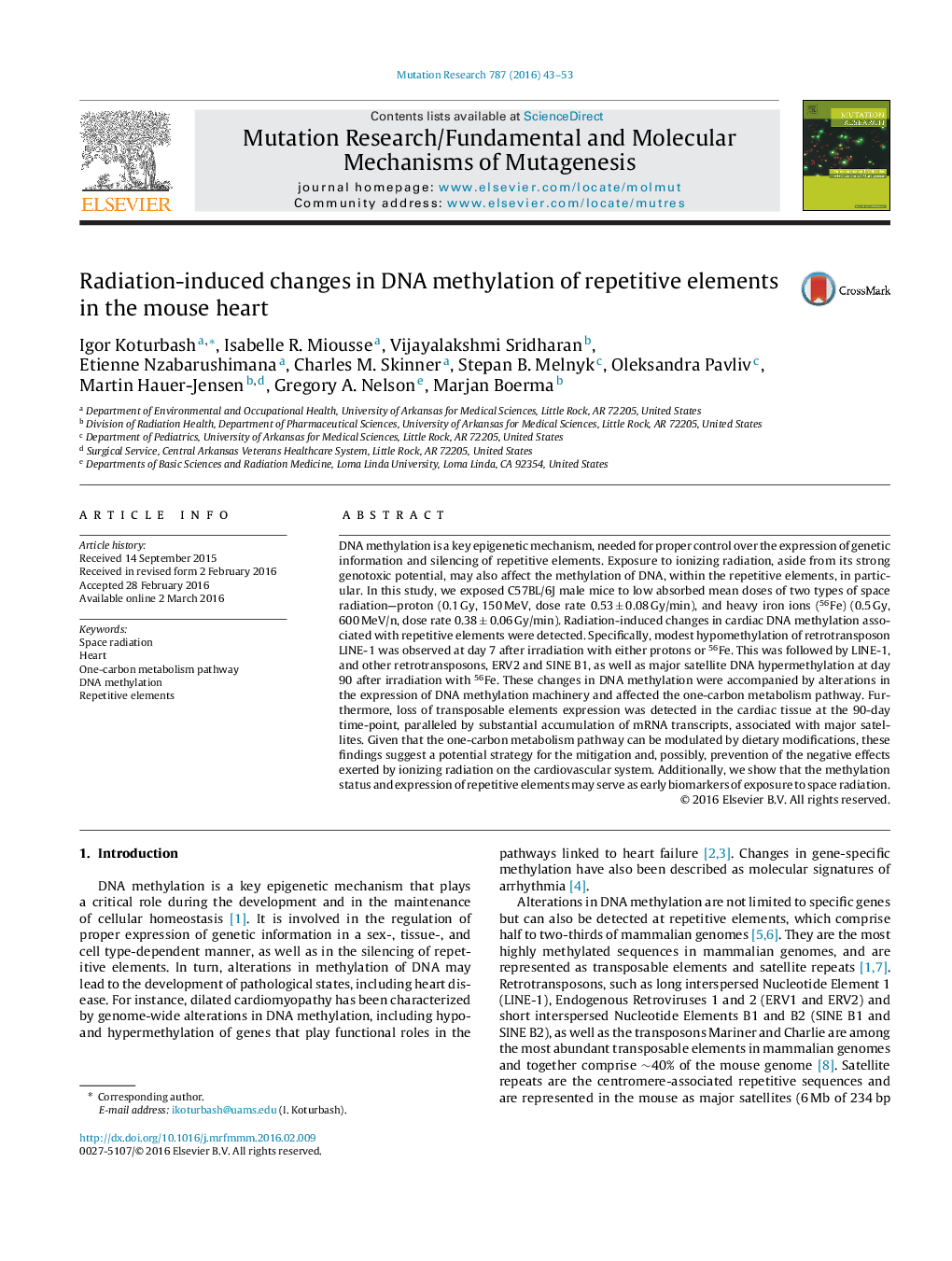| Article ID | Journal | Published Year | Pages | File Type |
|---|---|---|---|---|
| 2146118 | Mutation Research/Fundamental and Molecular Mechanisms of Mutagenesis | 2016 | 11 Pages |
•Radiation-induced dynamic changes in cardiac DNA methylation were detected.•Early LINE-1 hypomethylation was followed by hypermethylation at a later time-point.•Radiation affected one-carbon metabolism in the heart tissue.•Irradiation resulted in accumulation of satellite DNA mRNA transcripts.
DNA methylation is a key epigenetic mechanism, needed for proper control over the expression of genetic information and silencing of repetitive elements. Exposure to ionizing radiation, aside from its strong genotoxic potential, may also affect the methylation of DNA, within the repetitive elements, in particular. In this study, we exposed C57BL/6J male mice to low absorbed mean doses of two types of space radiation—proton (0.1 Gy, 150 MeV, dose rate 0.53 ± 0.08 Gy/min), and heavy iron ions (56Fe) (0.5 Gy, 600 MeV/n, dose rate 0.38 ± 0.06 Gy/min). Radiation-induced changes in cardiac DNA methylation associated with repetitive elements were detected. Specifically, modest hypomethylation of retrotransposon LINE-1 was observed at day 7 after irradiation with either protons or 56Fe. This was followed by LINE-1, and other retrotransposons, ERV2 and SINE B1, as well as major satellite DNA hypermethylation at day 90 after irradiation with 56Fe. These changes in DNA methylation were accompanied by alterations in the expression of DNA methylation machinery and affected the one-carbon metabolism pathway. Furthermore, loss of transposable elements expression was detected in the cardiac tissue at the 90-day time-point, paralleled by substantial accumulation of mRNA transcripts, associated with major satellites. Given that the one-carbon metabolism pathway can be modulated by dietary modifications, these findings suggest a potential strategy for the mitigation and, possibly, prevention of the negative effects exerted by ionizing radiation on the cardiovascular system. Additionally, we show that the methylation status and expression of repetitive elements may serve as early biomarkers of exposure to space radiation.
